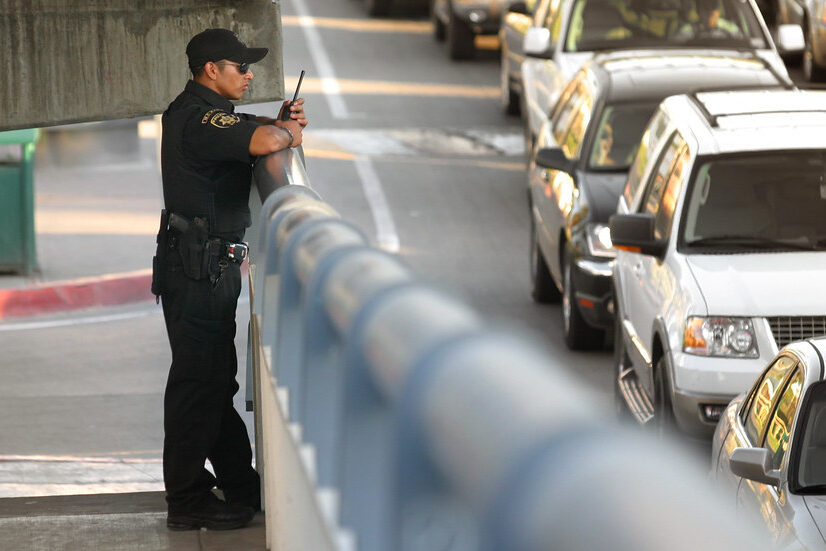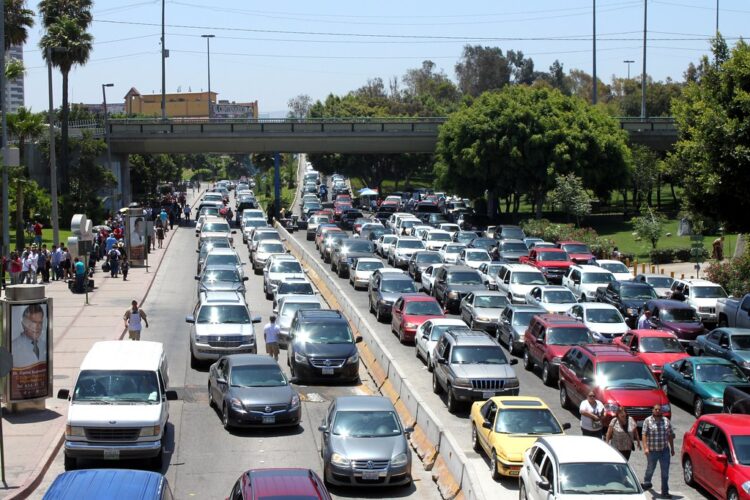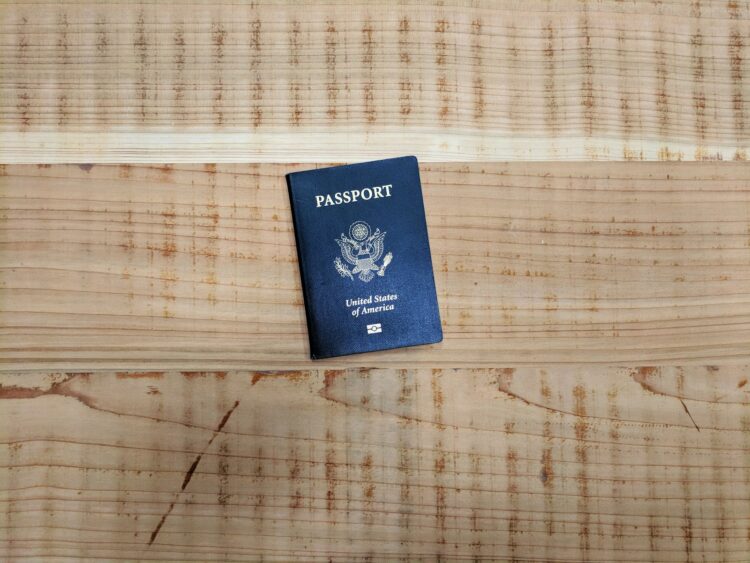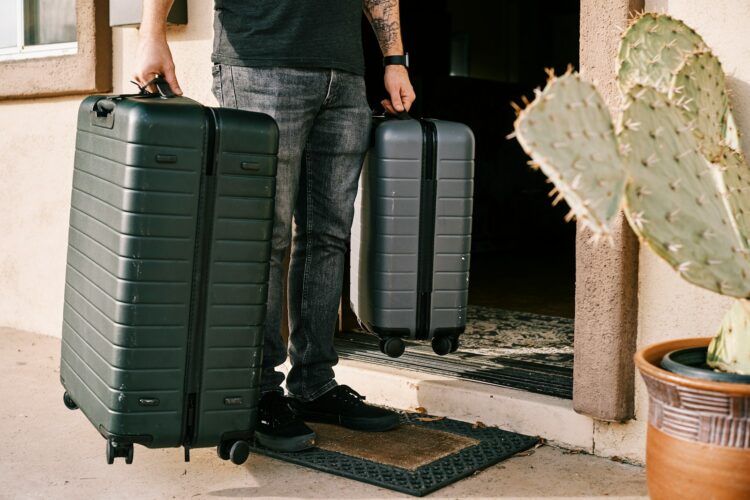
Crossing a border can be stressful, even when you have nothing to hide. Border patrol officers take their job extremely seriously, and anything you say can raise suspicion, delay your entry, or even get you denied access. Here are 15 things you should never say to a border patrol officer if you want your experience to go smoothly.
“I don’t know why I’m here.”

Border officials expect travelers to clearly state their purpose for entering the country. If you hesitate, seem unsure, or give conflicting answers, it can raise suspicion that you might be hiding something. Even if you’re just visiting, always have a direct and confident answer about why you are crossing the border. Saying something vague or uncertain could result in additional questioning or even denial of entry.
“I’m just here for fun… or maybe work… or something.”

Being vague about your travel purpose is a major red flag. If your answer keeps changing or sounds unclear, officers might assume you’re trying to avoid the truth—especially if you’re entering on a tourist visa but planning to work illegally. Stick to one clear reason that matches your visa and travel documents.
“I don’t have my passport with me.”

Forgetting or not having proper documentation is a guaranteed way to get stopped—or even sent back. Border officers are required to verify your identity, nationality, and legal right to enter the country. Always carry a valid passport, visa, and any required permits. If your passport is expired, damaged, or missing, you may be immediately denied entry or held up for questioning, delaying your trip significantly.
“I was here last time with no problem—why are you questioning me?”

Just because you entered easily before doesn’t mean you won’t be questioned this time. Border security procedures change, and officers assess each traveler individually. Responding with an attitude or challenging their authority can escalate the situation and make them more suspicious. Even if you’re frustrated, it’s best to remain polite and answer questions directly.
“I’m not carrying anything… I think.”

Uncertainty about what’s in your bag can immediately trigger a search. Even if you packed in a hurry, know exactly what you’re bringing across the border. If officers suspect you’re hiding something, they may detain you for further questioning and conduct a thorough inspection of your belongings. Always double-check your luggage before traveling to avoid delays or unnecessary suspicion.
“I forgot to declare that.”

Failing to declare items like large sums of money, food, alcohol, or restricted goods can lead to fines, confiscation, or denial of entry. Even if it’s unintentional, officers may see it as an attempt to smuggle something in. Always double-check declaration requirements before crossing, and if you’re unsure, it’s better to ask an officer rather than risk getting caught withholding information.
“I packed my bag, but someone else gave me this to bring.”

This statement will immediately raise alarms. Officers are trained to look for drug mules, smugglers, and human trafficking risks. If you didn’t personally pack your bag or are carrying something for someone else, you could be unknowingly transporting illegal items. If a friend or stranger asks you to transport something, always check what it is or politely refuse.
“Do I really have to answer that?”

Yes, you do. Refusing to answer basic questions like where you’re staying, how long you’ll be in the country, or your occupation makes you seem suspicious. While you have rights, being evasive or uncooperative can result in further questioning, detainment, or refusal of entry. Officers are trained to detect avoidance tactics, so it’s always best to provide clear and truthful responses.
“I don’t like giving out personal information.”

While protecting privacy is important, border crossings require a certain level of transparency. Officers must confirm your identity, travel plans, and legal status. If you refuse to provide basic details, they may suspect you’re hiding something illegal or trying to evade detection. If you have concerns about privacy, answer only what’s necessary and avoid being confrontational.
“I didn’t know that was illegal.”

Claiming ignorance won’t save you. Every country has strict customs laws, restricted items, and entry requirements. Whether it’s bringing in certain foods, medications, or undeclared currency, you’re still responsible for knowing the rules. Not knowing won’t prevent fines, further questioning, or even legal action. Always research the entry requirements of the country you’re visiting before you travel.
“Do you really need to search my bags?”

Yes, they do—if they choose to. Officers have the legal authority to search bags, vehicles, and personal belongings without a warrant. Questioning their authority can make them more suspicious and lead to a more thorough inspection or extended questioning. Cooperating with security checks helps speed up the process and reduces unnecessary scrutiny.
“I’m just here to party!”

This might sound like a fun, lighthearted comment, but it can make border officers question your intentions. If they think you’re planning to engage in reckless or illegal behavior, they might deny you entry—especially if you’re traveling alone or with a group of rowdy friends. Instead, provide a mature and responsible answer about your travel plans, like visiting landmarks, attending an event, or seeing friends and family.
“I have a little bit of weed, but it’s legal in my country.”

Even if marijuana is legal where you’re coming from, it may be illegal where you’re going. Admitting to possessing, using, or even recently consuming drugs, even legal ones, can get you detained or banned from entering a country. Some countries have zero-tolerance policies, and even past drug use can result in a lifetime ban.
“Can’t you just let me through?”

Trying to bypass procedures, rush the process, or sweet-talk an officer won’t work. If anything, it can prolong your screening because it makes it seem like you don’t want them to look too closely. Be patient, answer their questions, and follow instructions to make the process smooth. Acting entitled or impatient can turn a quick inspection into a lengthy ordeal.
“You’re just doing this to mess with me!”

Accusing a border officer of bias, unfair treatment, or harassment can make things worse for you. If you feel something is wrong, stay calm and professional. If necessary, ask to speak to a supervisor rather than escalating the situation with accusations or anger. Confrontational behavior may result in denial of entry, detainment, or further investigation.

